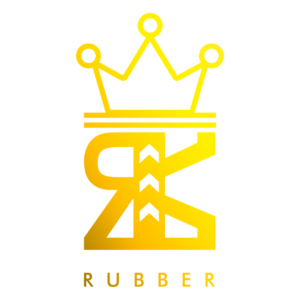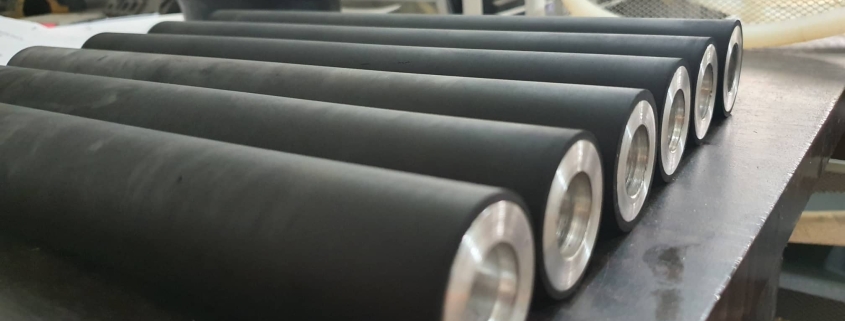Rubber Rollers Manufacturer in the Philippines
Rubber rollers are essential components in various manufacturing and processing industries, serving critical functions in material handling and surface treatment. In the Philippines, specialized manufacturers focus on producing rollers that meet rigorous performance and durability standards. These producers employ advanced materials and fabrication methods to accommodate diverse industrial applications. Understanding the types, materials, and quality controls involved reveals how these manufacturers address evolving operational demands.
Key Points
- The Philippines hosts several rubber roller manufacturers offering customized solutions for industrial, packaging, food processing, and textile applications.
- Local manufacturers focus on high-quality rubber compounds designed for durability, abrasion resistance, and chemical exposure specific to client needs.
- Many Philippine producers provide tailored rubber roller dimensions, textures, and hardness levels to optimize performance and product quality.
- Quality control includes stringent testing protocols ensuring rollers meet international standards for hardness, dimensional accuracy, and functional reliability.
- Innovations in the Philippines include sustainable materials and advanced surface coatings to improve roller longevity and operational efficiency.
Overview of Rubber Rollers and Their Industrial Importance
Rubber rollers are critical components in numerous industrial processes, functioning primarily to facilitate material handling, processing, and finishing. Their design and material composition directly influence operational efficiency and product quality across sectors. Effective rubber roller maintenance is essential to prevent premature wear, ensuring longevity and consistent output. Routine inspection and timely replacement of worn components are pivotal strategies for minimizing downtime. In addition, roller performance optimization hinges on precise calibration of hardness, texture, and adhesion properties tailored to specific applications. Advanced compound formulations enhance resistance to heat, chemicals, and abrasion, thereby expanding functional capabilities. Manufacturers integrating innovative maintenance protocols and material technologies achieve superior roller reliability, directly impacting throughput and cost-efficiency. As industries evolve, leveraging these advancements in rubber roller technology remains fundamental to sustaining competitive manufacturing processes.
Types of Rubber Rollers Produced by Manufacturers
Industrial rollers encompass a variety of specialized types designed to meet specific operational requirements across manufacturing sectors. Common types include laminator rollers for heat and pressure bonding, feed rollers ensuring consistent material transport, printing rollers optimized for precise ink transfer, conveyor rollers facilitating material movement, and heat transfer rollers engineered for thermal applications. Manufacturers implement advanced roller surface treatments to enhance wear resistance, adhesion, and anti-static properties, directly impacting performance and longevity. Effective roller maintenance techniques, such as regular surface inspections, cleaning, and timely reconditioning, are critical to sustaining operational efficiency and minimizing downtime. By integrating these innovations, manufacturers deliver rubber rollers tailored for durability, precision, and adaptability, addressing the evolving demands of high-performance industrial processes with optimized lifecycle management.
Materials Used in Rubber Roller Construction
The selection of materials for roller construction critically influences their mechanical properties, operational durability, and suitability for specific industrial environments. Rubber compounds serve as the foundational element, engineered for optimized roller durability and resistance to wear, heat, and chemical exposure. Key material considerations include:
- Base Rubber Type: Natural or synthetic rubbers are selected based on flexibility, hardness, and environmental resistance requirements.
- Fillers and Additives: Carbon black and plasticizers enhance tensile strength, abrasion resistance, and aging characteristics.
- Curing Agents: Accelerators and vulcanizing agents determine cross-link density, directly impacting elasticity and load-bearing capacity.
Customization Options for Rubber Rollers
Customization represents a critical capability in the manufacturing of rollers, enabling precise adaptation to the specific operational demands of diverse industrial applications. Leading manufacturers employ advanced custom design methodologies to tailor rubber rollers’ dimensions, surface textures, and hardness, ensuring ideal integration within client processes. Integral to this customization is the development of specialized rubber formulations, engineered to enhance properties such as abrasion resistance, heat tolerance, and chemical compatibility. By leveraging proprietary compounding techniques, manufacturers deliver rollers with targeted performance characteristics, including anti-static and high-adhesion features. This rigorous customization process addresses unique industry requirements, from printing to packaging, maximizing operational efficiency. Consequently, custom design and tailored rubber formulations constitute essential elements in producing high-performance rollers that meet evolving industrial standards and innovation-driven applications.
Manufacturing Process of Rubber Rollers
Executing a meticulous sequence of steps, the manufacturing process of rubber rollers guarantees ideal material properties and dimensional accuracy. Central to this process are advanced roll design and innovative manufacturing techniques that optimize performance. The process includes:
The meticulous manufacturing process of rubber rollers ensures optimal material properties and precise dimensional accuracy for superior performance.
- Rubber Compounding and Molding: Selection and blending of tailored rubber compounds followed by precision molding to form the roller’s core shape.
- Curing and Vulcanization: Controlled heat treatment enhances elasticity, strength, and resistance characteristics essential for industrial applications.
- Machining and Finishing: CNC machining guarantees exact dimensions while surface finishing provides the required texture and smoothness for specific functions.
These steps collectively improve durability and functionality, enabling the production of customized rollers that meet stringent industry standards and client specifications, driving innovation in rubber roller manufacturing.
Quality Control Standards in Rubber Roller Production
Consistency remains paramount in rubber roller production, where rigorous quality control standards guarantee each product meets exacting industrial requirements. Manufacturers implement extensive quality assurance protocols, including raw material verification, in-process inspections, and final performance testing. Critical performance metrics such as hardness, surface smoothness, dimensional accuracy, and compression resistance are systematically measured to confirm conformity with design specifications. Advanced non-destructive testing and precision machining validate roller integrity and functional reliability. Data-driven monitoring supports continuous process enhancement, reducing variability and increasing product consistency. Compliance with industry-specific standards further guarantees that rubber rollers maintain peak operational efficiency under diverse conditions. This stringent approach to quality control enables manufacturers to deliver innovative, high-performance rubber rollers tailored to meet evolving industrial demands with assured durability and precision.
Key Industries Utilizing Rubber Rollers
Rubber rollers are integral components across multiple industrial sectors, including printing, packaging, food processing, and textile manufacturing. In printing, they guarantee precise ink transfer and surface consistency, while in packaging, they facilitate material conveyance and lamination. Food processing and textile industries rely on specialized rubber rollers to enhance handling efficiency and maintain product integrity during manufacturing operations.
Printing Industry Applications
Numerous printing processes depend heavily on specialized rollers to confirm precise ink application and material handling. Advanced printing technologies, such as offset, flexography, and gravure, utilize custom rubber rollers to ensure uniform ink transfer and substrate feed. Ideal roller maintenance is critical to sustain consistent print quality and minimize downtime. Key applications include:
- Ink Transfer Rollers – Precisely calibrated to control ink film thickness and distribution.
- Blanket Rollers – Engineered for durability and surface smoothness to prevent defects.
- Impression Rollers – Designed to apply uniform pressure, enhancing image sharpness.
Innovations in rubber compound formulations enhance resistance to wear, heat, and chemicals, directly improving printing efficiency. Manufacturers investing in tailored roller solutions achieve superior performance, reducing scrap rates and extending maintenance intervals.
Packaging Sector Uses
In the packaging sector, industrial rollers are essential components that facilitate the efficient movement, wrapping, and sealing of products across production lines. Rubber rollers enhance packaging efficiency by ensuring consistent material handling, precise tension control, and accurate alignment during processing. Their customized rubber compounds contribute to superior grip and durability under continuous operation, reducing downtime. Effective roller maintenance, including regular inspection and timely resurfacing, is critical to sustain peak performance and prevent production interruptions. Innovations in material formulations and surface textures further improve resistance to abrasion, heat, and chemical exposure, addressing the demanding packaging environment. By integrating tailored rubber rollers, manufacturers optimize throughput, minimize waste, and maintain quality standards, positioning themselves at the forefront of packaging technology advancements.
Food Processing Roles
Beyond packaging applications, industrial rollers serve essential functions within food processing operations, where hygiene, durability, and material compatibility are paramount. Rubber rollers manufactured with specialized compounds optimize performance in critical tasks such as:
- Dough processing – Ensuring consistent dough thickness and texture through precise pressure control and non-stick surfaces.
- Fruit sorting – Facilitating gentle yet effective movement of delicate produce, minimizing damage while maintaining throughput.
- Conveyor systems – Providing reliable, contamination-resistant transport of food items across processing stages.
These rollers must comply with stringent food safety standards and resist chemical exposure from cleaning agents. Innovations in rubber compound formulation enhance resistance to wear, heat, and microbial growth, directly contributing to operational efficiency and product quality. RK Rubber Enterprise Co. delivers tailored rubber roller solutions that meet these exacting food industry demands, advancing automation and hygiene in Philippine food processing.
Textile Manufacturing Benefits
Enhancing fabric production processes, rubber rollers play a critical role in textile manufacturing by enabling precise control over material tension, dye application, and fabric finishing. Their optimized surface properties guarantee uniform dye distribution and consistent fabric texture, directly improving textile efficiency. The incorporation of advanced rubber compounds enhances roller durability, allowing sustained performance under continuous mechanical stress and exposure to diverse chemical agents. This durability minimizes downtime and maintenance costs, crucial for high-throughput textile operations. In addition, custom-designed rubber rollers facilitate adaptability across various fabric types and production stages, supporting innovation in textile processing. By integrating tailored roller solutions, manufacturers achieve superior process control, reduced material waste, and enhanced end-product quality, positioning rubber rollers as indispensable components in advancing modern textile manufacturing technologies.
Innovations and Trends in Rubber Roller Technology
As advancements in material science and manufacturing processes evolve, rubber roller technology integrates novel compounds and surface treatments to improve durability, performance, and application-specific functionality. Key innovations focus on:
- Incorporation of sustainable materials, such as bio-based rubbers and recycled components, reducing environmental impact without compromising mechanical properties.
- Implementation of automation technologies in manufacturing, enabling precise control over roller dimensions, surface texture, and compound uniformity to enhance consistency and reduce production variability.
- Development of advanced surface coatings that increase abrasion resistance, chemical stability, and anti-static properties tailored to specific industrial applications.
These trends collectively drive efficiency gains, extend roller lifespan, and broaden the functional scope of rubber rollers. Manufacturers adopting these innovations position themselves at the forefront of industry demands, delivering customized solutions aligned with evolving regulatory and operational standards.
Frequently Asked Questions
What Is the Typical Lead Time for Custom Rubber Roller Orders?
Typical lead times for custom roller specifications depend on complexity, material selection, and production timelines. Advanced manufacturing processes and tailored compound formulation influence delivery schedules, requiring precise coordination to meet innovation-driven industry demands efficiently and reliably.
How Do You Handle Repair or Refurbishment of Worn Rubber Rollers?
Roller maintenance involves thorough inspection and assessment of wear patterns. Refurbishment techniques include precision resurfacing, rubber compound reapplication, and balancing to restore performance, extending roller lifespan while ensuring operational efficiency and compliance with industry innovation standards.
Are There Eco-Friendly or Recyclable Rubber Roller Options Available?
In response to evolving industry standards, eco-conscious alternatives employing sustainable materials are gradually emerging, minimizing environmental impact. These innovations include recyclable rubber compounds designed for durability and performance, aligning with progressive manufacturing goals for reduced ecological footprints.
What Shipping Methods Are Used for International Deliveries?
International deliveries utilize freight forwarding services to guarantee efficient logistics management. Air cargo is preferred for expedited shipping, offering speed and reliability. These methods enable innovative supply chain solutions tailored to demanding industrial requirements.
Do You Provide Technical Support for Roller Installation and Maintenance?
Like a compass guiding a ship, the company provides installation assistance and maintenance tips, ensuring ideal roller performance. Their technical support empowers clients to navigate challenges, enhancing operational efficiency through innovative, precise, and industry-focused solutions.
Conclusion
Rubber rollers play a critical role across diverse industries, with manufacturers in the Philippines delivering tailored solutions that enhance operational efficiency. Particularly, customized rubber rollers can extend equipment lifespan by up to 30%, underscoring their impact on cost reduction and productivity. Through advanced materials, precise manufacturing, and stringent quality controls, these manufacturers meet rigorous industry standards, positioning themselves as essential partners in sectors such as packaging, food processing, and textiles. Continuous innovation drives their competitive edge.

